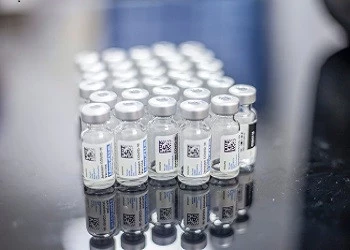Almac on Brexit preparation and maintaining your Clinical supply
Add bookmarkTo what extent do you think a hard Brexit could affect clinical trial supply both inside and outside the UK? Do you see much of an effect if we are just soft brexiting?
The lack of clarity and uncertainty surrounding the direction Brexit will take is perhaps the most challenging aspect for our industry, particularly considering the challenging timescales involved in supporting clinical trials. Patient recruitment levels can fluctuate with little notice and new country addition to trials by clinical teams can occur quickly. This can be further complicated by short expiry dates on investigational medicines leading to the need for very attentive supply chain management. A soft Brexit is unlikely to have a strong affect on how IMPs are supplied. However, it still must be assessed by any organisation supplying the UK and EU.
A hard Brexit, on the other hand, has the possibility of introducing obstacles in areas of customs controls and additional batch certification requirements. Following the referendum in June 2016, companies like Almac reacted immediately, putting in place a strategy to ensure a seamless solution, regardless of the outcome of Brexit. A key element of our strategy was the establishment of our new EU campus in Dundalk, Ireland, which is now operational. Ongoing focus on this strategy and early reaction to client and UK & EU government signals has been key to our operational readiness activities and removal of the potential obstacles related to a hard Brexit.
Which areas of the supply chain do you think will be most highly affected by Brexit and changes in the political environment?
At this point it is still unclear as to how Brexit will affect our industry, e.g. the future regulatory framework (and degree of mutual recognition between EU27 and UK) will determine to a large extent the impact to our industry. It has been encouraging to note that the UK government has described medicines as one of the key areas for continued close alignment with the EU. However our company’s Brexit solution ensures we are ready for all outcomes, and will ensure our clients’ trials will remain unaffected, even if there are significant changes to the existing regulatory framework and transfer of product between Europe and the UK.
What steps has Almac taken to prepare for the potential Brexit eventualities? How are you approaching the timeline in terms of priorities?
Almac has been very proactive in providing a guaranteed supplies solution in preparedness for Brexit. As a key part of our overall Brexit strategy, we established an EU campus based in Dundalk, Ireland, just 40 minutes from our global HQ site in Northern Ireland. The campus includes a state-of-the-art processing facility for commercial drug product services, a dedicated EU distribution centre for clinical trial material and a custom built QC laboratory.
We have been approved by the Irish medicines regulator (HPRA) to conduct QP batch certification and release for both clinical trial material and commercial drug product directly from this site since 2018. This has been recently further enhanced to include physical import, storage, and release testing. The proximity of our UK facilities and new EU campus is a unique offering which offers distinct advantage to our clients and, regardless of the outcome of Brexit, our priority is for our dedicated teams to continue to deliver an uninterrupted service to our global client base.
Do you think Brexit will create a need for alternative supply routes, and how could this affect both timelines and cost of supply?
For some companies the UK is the main point of entry to Europe therefore an alternative importing entity may have to be sought and relevant authorisation licences put in place. Companies which have Authorised Economic Operator status, an internationally recognised quality mark which covers international movement of goods, will be able to fast-track shipments through customs and safety and security procedures. Our unique location, and the solutions already implemented, serve to eliminate, as much as possible, any timeline concerns that our clients might have.
We already significantly utilise Dublin airport to transport IMPs quickly to EU sites and have worked hard with our courier partners to ensure capacity will match expected demand within existing cost structures. Other companies may have to focus on the introduction of alternative supply routes, particularly if they currently use those described by the UK government as the short straits, typically between the south east of England and mainland Europe.
No one can accurately predict what will happen after Brexit, but if you could offer any advice to the Pharma companies trying to prepare for its impact what would you say?
Maintain a Brexit expert team appropriate to the type of business. Involve Operations, Regulatory, Clinical, Finance and Senior Management functions. Ensure the team continues to monitor, stay informed and react appropriately to UK Government negotiations with the EU and how any agreement or absence of agreement might affect trials – particularly in terms of guidelines related to pharmaceutical regulations and customs and duties matters.
I would encourage pharma companies to perform and repeatedly reassess a comprehensive risk assessment of their entire supply chain to establish any impact, implement plans to counteract any effect and develop a strategy to ensure continuity of supply for your current and near-future studies. Excellent supply chain management processes are essential in order to provide up-to-theminute data along with a thorough review of current and pending Clinical Trial Applications..
Finally, if you undertake the items above and identify significant gaps at this late stage, transition now to a clinical services provider which is prepared and positioned to operate in the post-Brexit EU and UK. This will help facilitate a successful transition with minimal impact to your clinical trial supply regardless of the outcome of Brexit.















